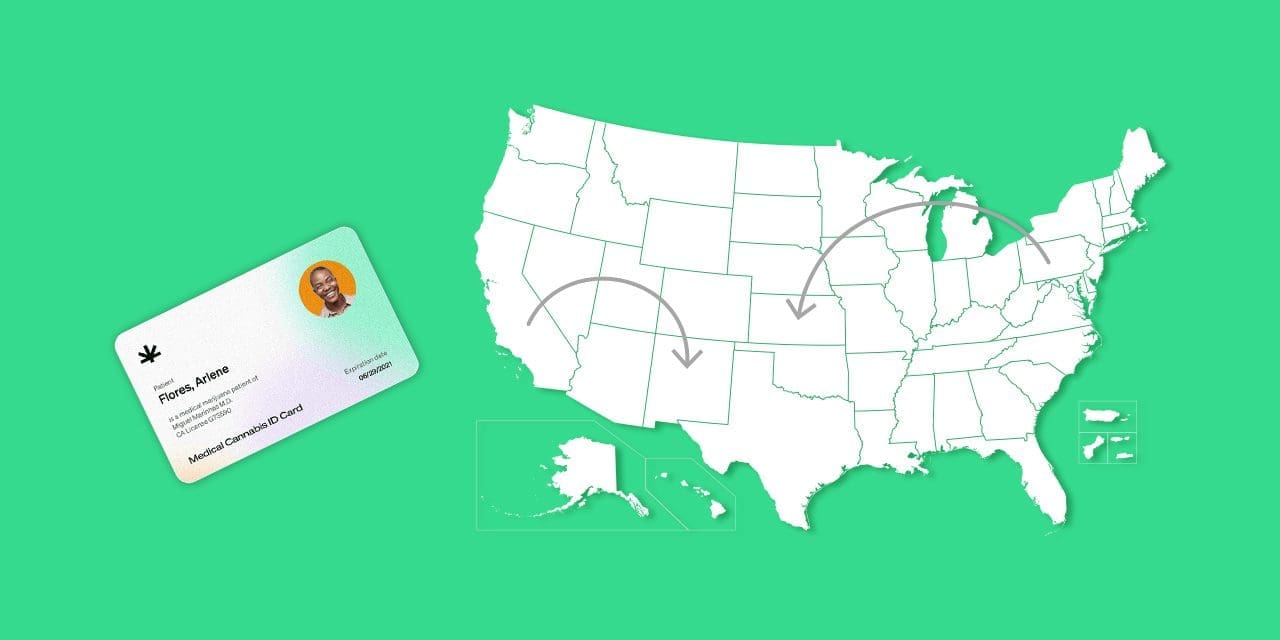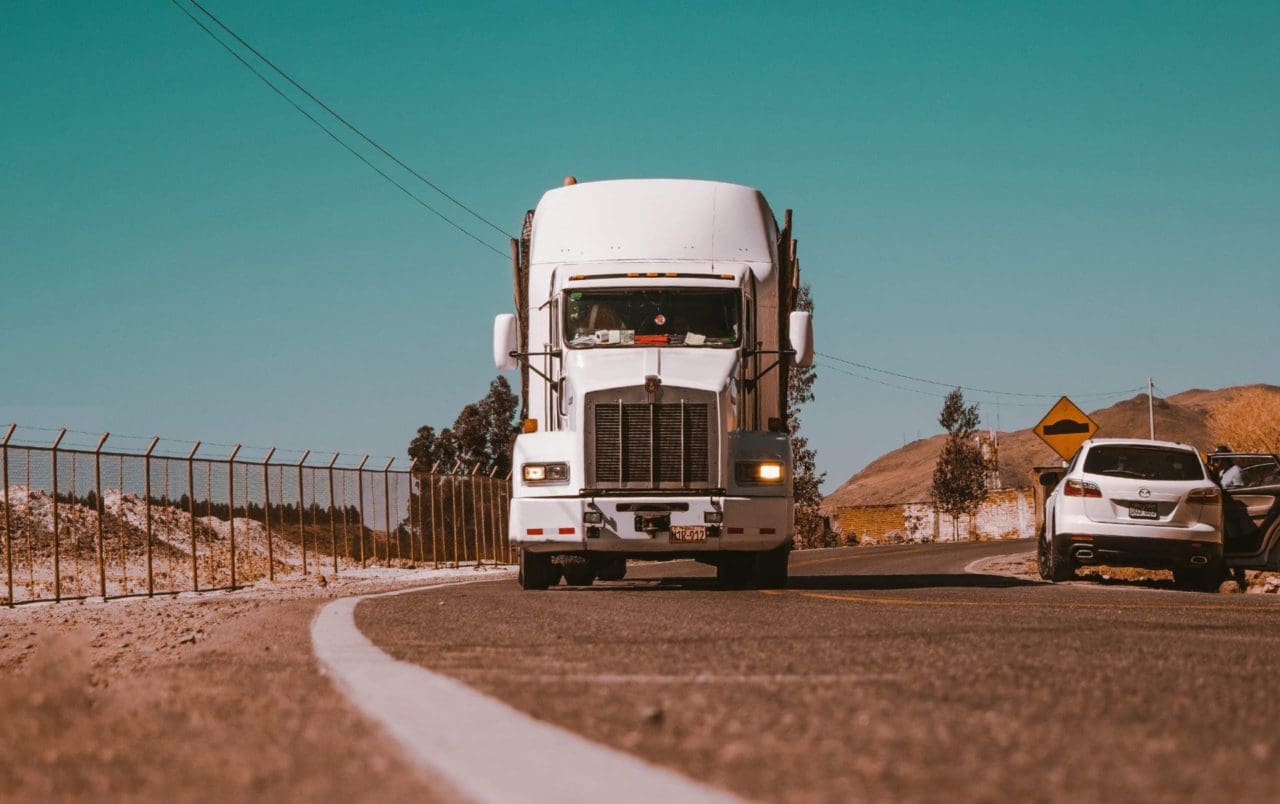Cannabis and Boating: Can You Have Marijuana on Board?
5 min read



Adult-use cannabis is legal in more than 20 U.S. states making many people wonder about how regulations apply to cannabis and boating. Many want to know what the law allows, from drinking cannabis-infused cocktails to smoking a pre-roll while taking in the sunset.
First, cannabis-loving boaters must remember that marijuana is illegal under federal law, and many states have restrictions on smoking on board. Even in states where recreational marijuana use is legal, federal regulations complicate smoking and boating.
Get Your Medical Card
Connect with a licensed physician online in minutes.
Larger purchase limits Access to higher potency strains Save up to 40% on product taxes Enhanced legal protection
Marijuana and Maritime Law
Maritime law is the set of regulations that govern a boat’s operation, safety, and navigation. This includes federal, state, and international laws governing all bodies of water, like lakes, rivers, canals, and oceans. It’s a set of rules that help keep people safe on boats and ensure they responsibly operate these vessels.
The U.S. Coast Guard is the federal law enforcement agency that enforces maritime law in U.S. waters and has the authority to stop and search boats. The Coast Guard can inspect for drugs, alcohol, safety equipment, and other issues related to vessel operation.
Under maritime law, it’s illegal to possess and use marijuana on boats. This includes cannabis for recreational and medical use. Boaters should know that consuming marijuana on a boat is equivalent to consuming it publicly, leading to legal penalties, including significant jail time and fines. For example, a first-time federal offense for possession of cannabis can include up to a year in jail, and a second conviction comes with mandatory sentencing.
What About International Maritime Law?
International maritime law also includes regulations regarding cannabis and boating. While recreational cannabis use is legal in some countries, many others have stringent rules regarding the possession and use of marijuana and other drugs. The international waters around the continental U.S. are subject to the laws of the neighboring country, and boaters need to be aware of these regulations if they’re traversing global waterways.
For example, while cannabis is legal in Canada, recreational use on the water in the Northern nation gets the same treatment as drinking and boating — operating any vehicle under the influence is illegal. Laws for driving a motor vehicle under the influence in Canada vary by province, but they all take a zero-tolerance stance with severe penalties. Canada will probably deny entry to Americans convicted of DUI or other drug-related offenses on the water.
Boaters unsure of a country’s laws should remember that cannabis is illegal under federal law in many U.S. states and most international waters around the U.S. It is worth remembering that, even in countries and states where cannabis is legally available, they often have rules against operating heavy machinery of any sort when under the influence of cannabis, making it a similar offense as driving a car under the influence of any intoxicating substance.
Is CBD Legal Under Maritime Law?
Many Americans consume cannabidiol (CBD), a hemp and cannabis compound, to manage anxiety, pain, and other wellness needs. Unlike THC, the main psychoactive component of marijuana, CBD is not intoxicating.
CBD also is legal under federal law in the U.S., but its boat status remains unclear. The Coast Guard has released no official guidance on CBD and maritime law for civilian passengers on boats.
Additionally, federally legal full-spectrum CBD oils contain trace THC levels. And Mariners with seafaring licenses could lose their licenses if they test positive for any amount of THC above a certain threshold, usually between 1 ng/ml and 5 ng/ml, depending on the state (this takes into account “accidental exposure”). This rule applies to all CBD consumption methods, from edibles to topicals.
Broad spectrum or CBD isolate may be a safer alternative because these products don’t contain any THC content. But even these products don’t guarantee legal protection.
International laws regarding CBD and boating are also unclear. Boaters should check individual countries’ laws before consuming CBD in open water. However, given the regulations for U.S. coastal waters, it’s safe to assume that CBD is also risky internationally.
Can You Have Weed on a Boat in a Legalized State?
As long as cannabis is illegal federally, it’s unlawful on boats nationwide.
Maritime law applies to all navigable waters — rivers, lakes, and oceans — in the United States, even if recreational marijuana is legal. The U.S. Coast Guard can board boats, inspect them, and seize any marijuana they find. But boaters who operate their vehicles safely and follow the rules like wearing lifejackets, obeying speed limits, and exercising caution are unlikely to be stopped.
Most legal problems involving cannabis and boating arise from collisions and injuries on the water.
Additionally, any maritime accident can lead to mandatory drug screenings. If cannabis is present, the authorities have cause to test licensed operators for drugs. Because cannabis can stay in the body for weeks after use, the mere presence of THC in a licensed boater’s system can lead to an arrest for operating a vessel while under the influence, even if they weren’t high at the time of the accident. If a fatal boating accident occurs, boat operators, when in possession of cannabis, risk losing their license and could face severe criminal penalties.
Private Waterways
People who own a boat and live on a private waterway may be able to possess marijuana on board as long as it remains out of the public’s sight.
For example, individuals with several hundred acres of land in Colorado with a private lake that the U.S. Coast Guard doesn’t navigate may be able to possess cannabis — even though it’s illegal federally and in public waters. But they must comply with all Colorado laws, which strictly prohibit the captain from consuming cannabis while operating the boat. Passengers may be safe to consume. But if an accident occurs and marijuana is present, the captain and voyagers could face legal trouble.
Another situation with West Coast locations is private beachfront property Anyone on open waters is subject to maritime laws, whether the beachfront is private or public. However, coastal property owners can partake while sitting on their secluded beaches if they abide by California state laws.
Cannabis and Open Container Laws
Cannabis possession on a boat follows open container laws, with some states even considering an exposed pre-roll an “open container.” Boaters should be conscious of state and local laws prohibiting open containers, including alcoholic beverages, in vehicles. This law applies to boats as well as cars. Passengers must seal and store all alcohol and cannabis out of reach if the vessel is in motion.
The Bottom Line
The bottom line is that cannabis and boating don’t mix, and anyone on federal waters is subject to legal penalties. Nonetheless, recreational boat passengers can mitigate risk by packing their cannabis properly, wearing life jackets, using safety equipment, and abiding by all applicable state laws.
Get Your Medical Card
Connect with a licensed physician online in minutes.
Larger purchase limits Access to higher potency strains Save up to 40% on product taxes Enhanced legal protection
0


